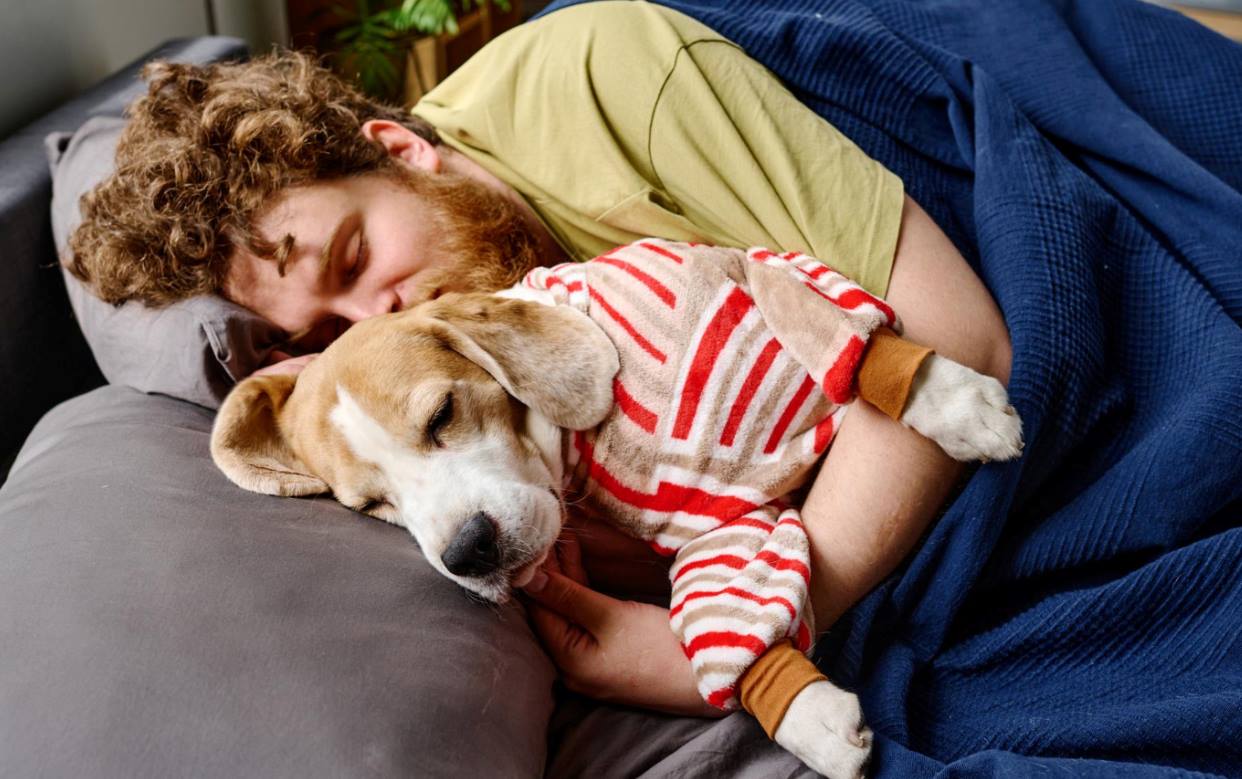
Pet owners should be aware that showing excessive affection to their dogs and cats without proper hygiene precautions could potentially put their lives at risk. New studies have discovered that treating pets like humans, such as giving kisses or cuddles, may lead to the transmission of drug-resistant bugs through saliva.
Everyone loves a heartwarming cuddle session with their pets, but scientists from the Glasgow Caledonian University have warned pet owners of the potential risk of spreading antibiotic-resistant bacteria through saliva. While kissing and cuddling strengthen the human-animal bond, research at this university found that excessive physical contact with your furry friends comes with considerable health risks.
The researchers have acknowledged that behaviors like cuddling and letting our dogs lick our faces are an inevitable part of pet ownership that is unlikely to change anytime soon. According to Adele Dickson, the psychologist leading the study, this close contact could potentially transfer antibiotic-resistant bugs through saliva.
Dickson and her team interviewed 35 dog owners, finding that many dogs had been unnecessarily treated with antibiotics. Vets may be too quick to prescribe antibiotics, and owners often request them even when their pets don't need them. Just like in humans, the misuse and overuse of antibiotics in pets can lead to antibiotic resistance, which can then spread to humans through contact.
To minimize the risk of spreading antibiotic resistance, the researchers suggest that pet owners and vets carefully consider the use of antibiotics and try to limit contact with their dogs' saliva as much as possible. However, the study does not recommend completely avoiding all contact with pets.
Zoonotic diseases, also known as zoonoses, are contagious illnesses that can move from animals to humans. More than 70 infectious diseases present in domesticated animals have the potential to infect humans as well. While some pets may exhibit signs of illness when carrying a zoonotic pathogen, some cases don’t include any visible symptoms. This can make it challenging for pet owners to recognize if their pet is harboring harmful germs, thereby increasing the risk of human infection.
According to some studies, pet-related infectious diseases in humans are not very common. However, the actual number of infections is probably higher because many zoonoses don’t have notifiable symptoms or may have various ways of spreading. Zoonoses can be passed on from pets to humans directly, including through contact with saliva, feces, and bodily fluids.
Dogs and cats can carry various zoonotic infections that pose a potential risk to their humans. These infections can be caused by viruses, bacteria, fungi, and parasites. One example is the methicillin-resistant bacterium Staphylococcus aureus (MRSA), which can be present in both dogs and cats. It is worth noting that close contact with pets is a significant risk factor for the transmission of these infections.
Additionally, young children with pets are more susceptible to getting sick due to their careless behaviors. For instance, they often put their hands in their mouth after playing with pets, increasing their risk of infection. Moreover, children are less likely to properly wash their hands after handling pets, further increasing their vulnerability to these diseases.
All this information might sound worrying, but don’t fret - you don’t have to stop giving your pet physical affection! With the following basic hygiene and pet husbandry tips, you can maintain a safe and loving bond with your furry friend.

Taking proper precautions can greatly decrease the risk of getting zoonotic diseases from your pets. It's important to be a responsible pet owner and practice good hygiene to ensure the well-being of both your family and your pets.